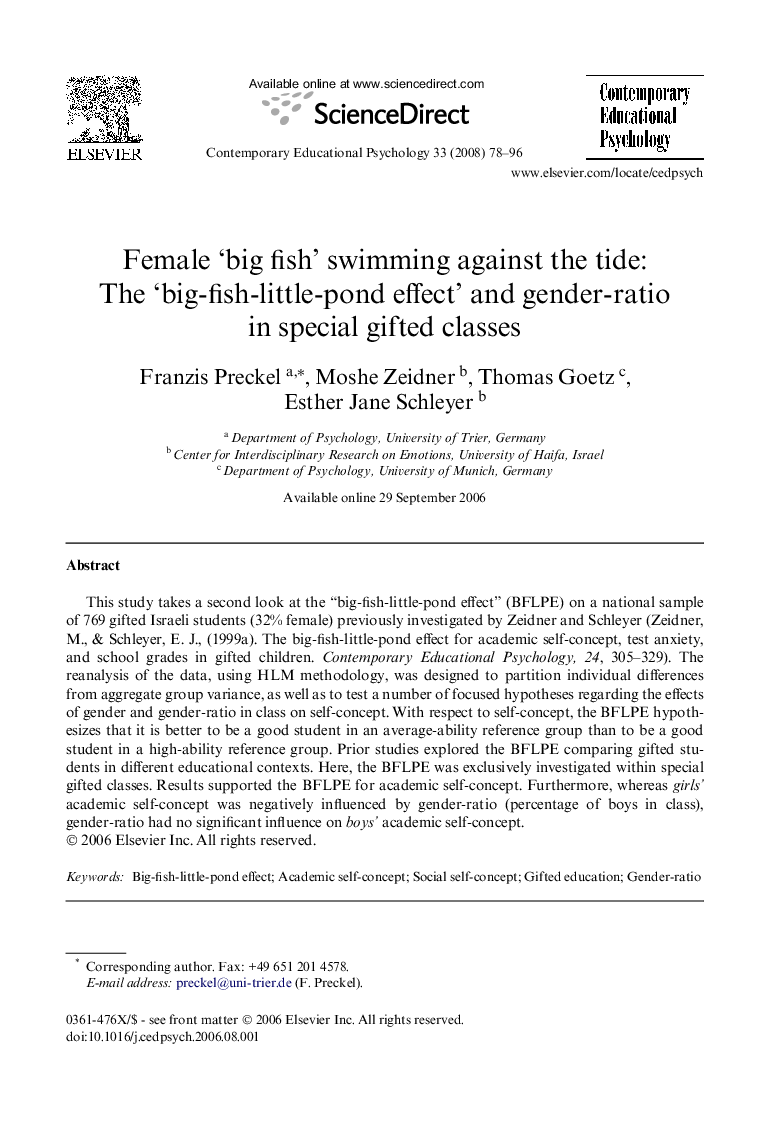| Article ID | Journal | Published Year | Pages | File Type |
|---|---|---|---|---|
| 352897 | Contemporary Educational Psychology | 2008 | 19 Pages |
This study takes a second look at the “big-fish-little-pond effect” (BFLPE) on a national sample of 769 gifted Israeli students (32% female) previously investigated by Zeidner and Schleyer (Zeidner, M., & Schleyer, E. J., (1999a). The big-fish-little-pond effect for academic self-concept, test anxiety, and school grades in gifted children. Contemporary Educational Psychology, 24, 305–329). The reanalysis of the data, using HLM methodology, was designed to partition individual differences from aggregate group variance, as well as to test a number of focused hypotheses regarding the effects of gender and gender-ratio in class on self-concept. With respect to self-concept, the BFLPE hypothesizes that it is better to be a good student in an average-ability reference group than to be a good student in a high-ability reference group. Prior studies explored the BFLPE comparing gifted students in different educational contexts. Here, the BFLPE was exclusively investigated within special gifted classes. Results supported the BFLPE for academic self-concept. Furthermore, whereas girls’ academic self-concept was negatively influenced by gender-ratio (percentage of boys in class), gender-ratio had no significant influence on boys’ academic self-concept.
